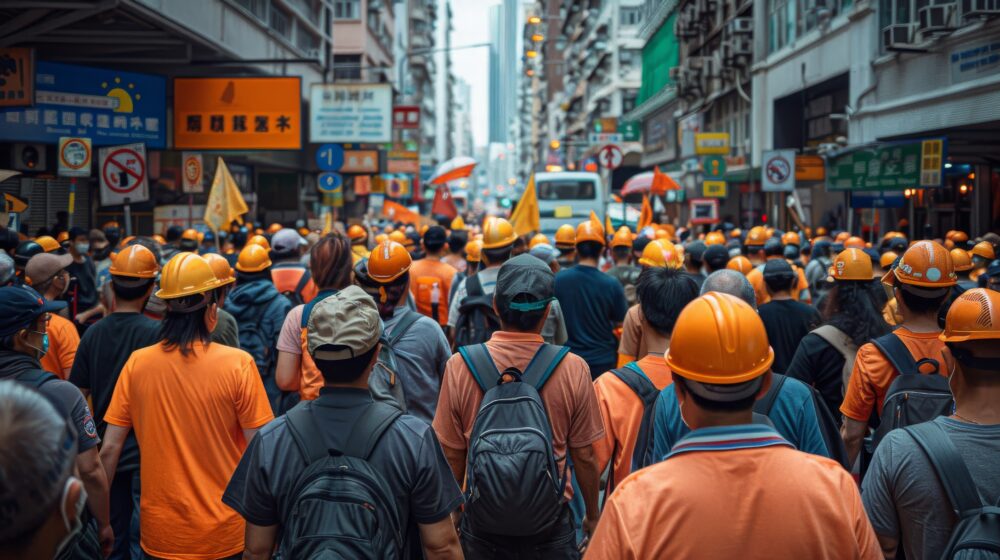Currently, it is common practice for overseas parent companies to assign senior personnel to Vietnam for management and operational roles within foreign-invested enterprises. Many enterprises, in particular, appoint these personnel as legal representatives due to their global management experience and deep understanding of the parent company’s strategies and policies. This ensures consistent governance and efficient coordination of business activities in Vietnam. When assigning intra-corporate transferees as legal representatives, companies must thoroughly understand the legal requirements related to residency, job titles, and work permits to mitigate potential risks during operations.
1. Definition of intra-corporate transferees
The Intra-corporate transferee must meet the following conditions:(1)
- Being a manager, an executive officer, an expert or a technical worker of a foreign enterprise;
- Having worked for such enterprise for at least 12 consecutive months before being transferred to Vietnam..
- The foreign enterprise must have a commercial presence in Vietnam, including: foreign-invested economic organizations, representative offices, branches of foreign traders, or executive offices of foreign investors in business cooperation contracts.(2)
In addition to meeting the above conditions, the enterprise must have a decision on the transfer or assignment of the foreign employee to Vietnam issued by the foreign company. This serves as the basis for proving that the employee qualifies as an intra-corporate transferee.
2. Conditions for intra-corporate transferees to work legally in Vietnam
2.1 Residency requirements
If the intra-corporate transferee is the sole legal representative of the company, they must reside in Vietnam.(3) To prove residency, the individual must have one of the following legal documents:
- Valid Visa
Foreigners entering Vietnam for work purposes must obtain one of the following types of visas: LD1, LD2, DN1, or EV. The enterprise will sponsor the issuance of the visa for the employee.(4) The type of visa granted depends on the employee’s duration of stay in Vietnam and whether they qualify for a work permit exemption. Specifically, as follows: (5)
- LD1 – Issued to foreigners working in Vietnam who are certified as not subject to WP requirements, except as otherwise stipulated by international treaties to which Vietnam is a party (valid for up to two years).
- LD2 – Issued to foreigners working in Vietnam who are subject to WP requirements (valid for up to two years).
- DN1 – To be granted to foreigners who work with other enterprises or organizations with the legal person status in accordance with Vietnam’s law (valid for up to 12 months).
- EV – E-visas (valid for up to 90 days).
- Temporary residence card: Foreigners residing in Vietnam for work purposes must obtain a temporary residence card under the LD1 or LD2 categories.
2.2 Job title requirements
Under Vietnamese law, the legal representative of a company must hold a specific title, depending on the type of enterprise:
- For joint-stock companies: the legal representative must be the Chairman of the Board of Directors, the General Director, or the Director. (6)
- For limited liability companies with two or more members: The legal representative must be the Chairman of the Members’ Council, the General Director, or the Director.(7)
- For single-member limited liability companies:
- If owned by an organization: The legal representative must be the Chairman of the Members’ Council, the Chairman of the company, the General Director, or the Director.(8)
- If owned by an individual: The legal representative must be the Chairman of the company, the General Director, or the Director. (9)
Depending on the title, enterprises must have the appropriate appointment decision or employment contract for the foreign employee.
2.3 Permit requirements
To legally work in Vietnam, foreign employees must obtain either a Work permit or a Certification of work permit exemption confirmation (“Exemption Certification”).
Normally, intra-corporate transferees may qualify for a work permit exemption if they fall under one of the following categories:
- Being an intra-corporate transferee in the 11 service sectors listed in Vietnam’s Schedule of World Trade Organization Commitments on Services, including business services, communication services, construction and related engineering services, distribution services, educational services, environmental services, financial services, health related and social services, tourism and travel related services, recreational, cultural and sporting services, and transport services.
If the enterprise operates in at least one of the service sectors mentioned above, the employee will not be required to obtain a work permit. The enterprise is not required to be engaged in all of the listed service sectors.
- Entering Vietnam to work as a manager, an executive, an expert or a technical worker for fewer than 30 days per entry and with no more than 3 entries in a year.
If the foreign employee primarily works remotely from abroad and is not frequently present in Vietnam, the company may apply for the Exemption Certification under this category. However, if the individual is the sole legal representative of the enterprise, they cannot qualify for this exemption, as they must meet residency requirements in Vietnam.
If the foreign employee does not qualify for the work permit exemption under Article 154 of the Labor Code 2019 and Article 7 of Decree 152/2020/ND-CP, the company must apply for the Work permit.
See more: Notable to obtain a work permit for legal representative who is a foreigner
Note: Besides acting as the legal representative, if the foreign employee also works at a branch or business location of the company, each branch or business location must obtain a separate Work Permit or Exemption Certification for the employee, as each permit is only legally valid for the specific registered location.
(1) Article 3.1 Decree 152/2020/ND-CP.
(2) Article 3.7 Decree 152/2020/ND-CP.
(3) Article 12.3 Law on Enterprises 2020.
(4) Article 16 Law on foreigners’ entry into, exit from, transit through and residence in Vietnam 2014 (amended and supplemented in 2019 and 2023).
(5) Article 8 and Article 9 Law on foreigners’ entry into, exit from, transit through and residence in Vietnam 2014 (amended and supplemented in 2019 and 2023).
(6) Article 137 Law on Enterprises 2020.
(7) Article 54 Law on Enterprises 2020.
(8) Article 79 Law on Enterprises 2020.
(9) Article 85 Law on Enterprises 2020.
Disclaimers:
This article is for general information purposes only and is not intended to provide any legal advice for any particular case. The legal provisions referenced in the content are in effect at the time of publication but may have expired at the time you read the content. We therefore advise that you always consult a professional consultant before applying any content.
For issues related to the content or intellectual property rights of the article, please email cs@apolatlegal.vn.
Apolat Legal is a law firm in Vietnam with experience and capacity to provide consulting services related to Business and Investment and contact our team of lawyers in Vietnam via email info@apolatlegal.com.





































